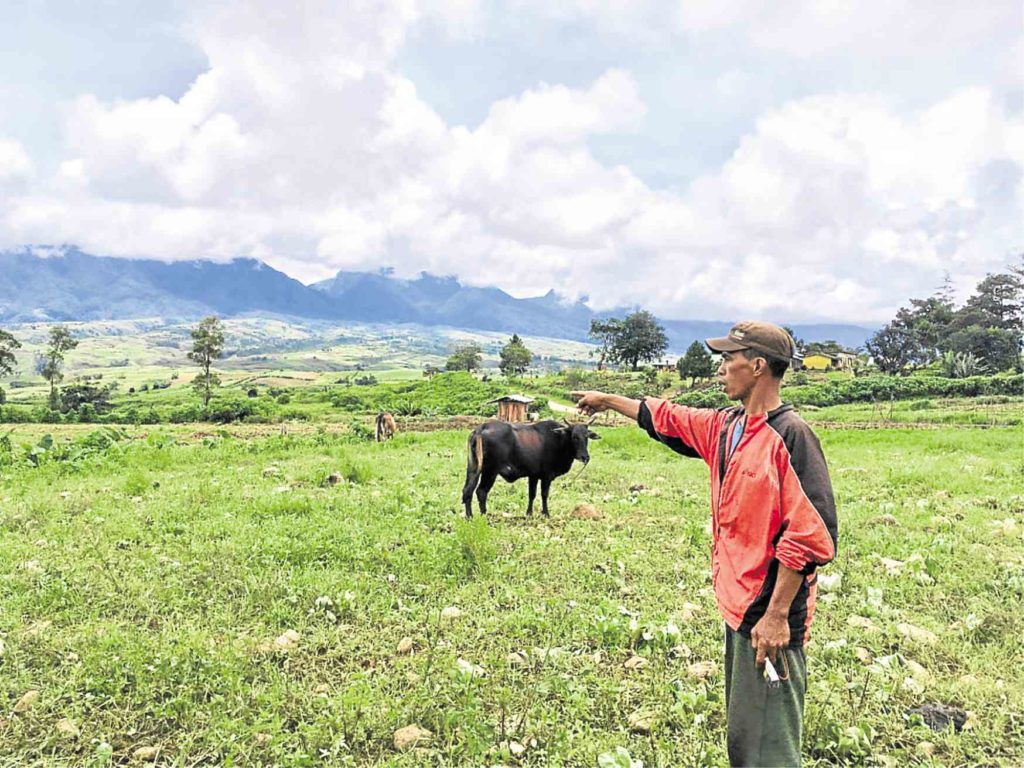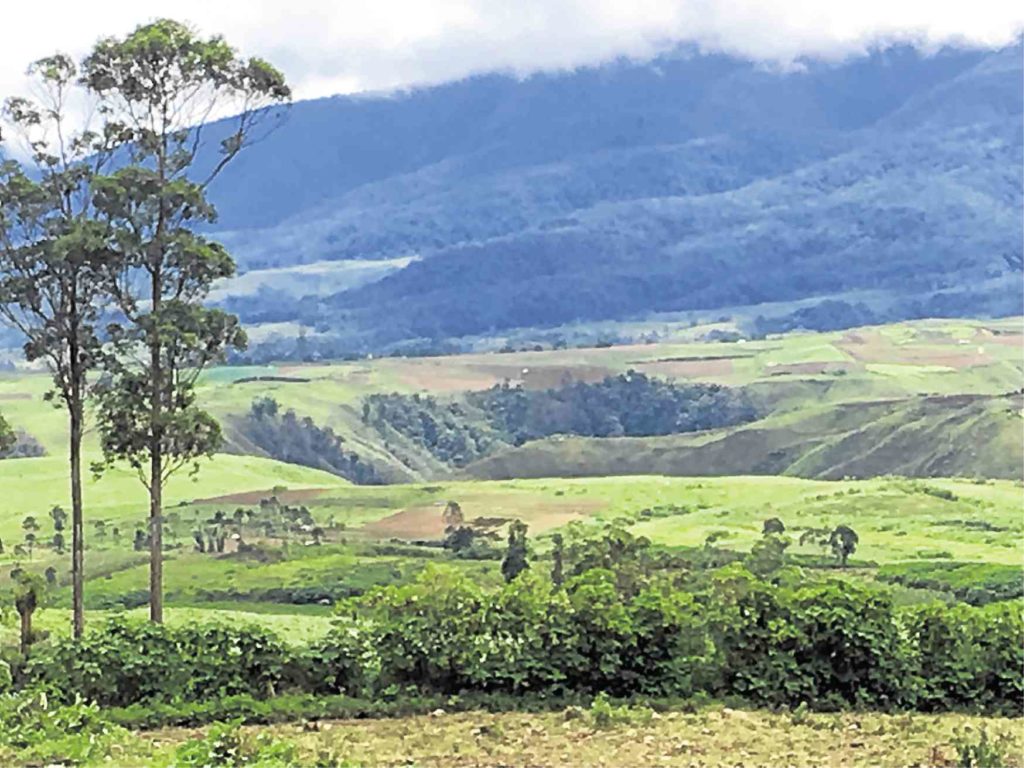IPs seek to make the most of their land
An hour and a half drive from the city of Malaybalay, Bukidnon is the picturesque town of Talakag. Nestled in the foothills of Mt. Kalatungan, the Philippines’ sixth highest mountan, Talakag is also the site of the Milalittra ancestral domain.
Milalittra or the Miarayon, Lapok, Lirongan and Tinaytayan Tribal Association has been awarded more than half of the Talaandig tribe’s ancestral land area.
Planted here are high value vegetables such as cabbage and cauliflower, which are delivered mainly to the markets in Cagayan de Oro City.
The indigenous peoples have also found a new income source in coffee, especially in the high elevation areas suitable for the prized Arabica variety.
Poverty incidence
Article continues after this advertisementAdded income is desperately needed in the tribal communities struggling with poverty.
Article continues after this advertisementIn Miarayon, an upland barangay in Talakag, the monthly income from farming is around P5,000, not even halfway to the poverty threshold of P11,773 in Bukidnon.
In the first quarter of 2015, Bukidnon recorded a 58.7 percent poverty incidence among its population.
Milalittra residents, however, see the possibility of a better life because of their Certificate of Ancestral Domain (CADT) for over 11,000 hectares.
This despite the fact that they are also unable to realize the land’s full potential because they lack tenurial security.
The organization was one of the first IP communities granted a CADT in 2003.
However, despite the issuance of a title, many groups and private individuals continue to migrate or acquire lands within their ancestral territory. Their pending title registration with the Registry of Deeds (RoD) under the Land Registration Authority (LRA) has caused widespread selling and buying of lands within the Milalittra CADT.
“Our CADT is not yet registered with the Land Registration Authority. So, we could not really say that this CADT is a full-fledged title. But the people here, however, treat this as their title. The issue we are facing today originated from the entry of migrants here in our ancestral domain,” says Datu Dominador Decano, one of the tribe’s elders and Milalittra treasurer.
Developments such us electricity and roads have attracted more migrants to the area.
Intermarriages between migrants and natives have become more frequent.
The increase in population demanded the use of more farmland for subsistence.
This trend has caused unmonitored selling and buying of land from natives to the migrants within the domain, which under the Indigenous People’s Rights Act (Ipra), the law which paved the way for the awarding of CADTs to indigenous peoples, is illegal.

Members of the Milalittra or the Miarayon, Lapok, Lirongan and Tinaytayan Tribal Association seek official control over their land.
Rampant selling
Another cause of rampant selling of lands within ancestral domains is that many IPs do not know their rights and obligations under the Ipra law.
There are also boundary conflicts due to unsettled land claims by ancestors.
Just recently, one of the members sold a five hectare parcel to the municipal government of Talakag, which plans to build an extension office in the barangay.
This puzzled the tribe’s elders since ancestral properties cannot be sold to outsiders, only to members of the tribe.
Tribal council
The sale of the land and the extension office project also did not go through the Free Prior and Informed Consent process, which is mandated by law for ancestral lands.
The Milalittra Tribal Council referred the case to the Regional Office of the National Council for Indigenous Peoples (NCIP). They also sought a dialogue with the Local Government of Talakag regarding this concern.
During a policy forum on the Joint Administrative Order No. 1 Series of 2012 held in Cagayan de Oro City, this concern was raised.
It remains to be seen when the issue will be finally resolved, but in the meantime, the Talaandig people in the Milalittra area continue to explore more ways to maximize the potential of the land they are proud to call their own.
The people are being helped in their quest for land security by the Joint Action for Land Rights (JALR), a project jointly implemented by the Asian NGO Coalition for Agrarian Reform and Rural Development, Balay Alternative Legal Advocates for Development in Mindanaw, Inc. (Balaod Mindanaw), Solidarity Towards Agrarian Reform and Rural Development (Kaisahan), and People In Need (PIN).
JALR
JALR contributes to the work of civil society organizations, including human rights organizations, working with vulnerable and socially excluded groups with particular focus on supporting the empowerment of farmers and indigenous peoples to claim their rights, including protecting the rights of human rights defenders.
The project is supported by the European Union’s European Instrument for Democracy and Human Rights (EU-EIDHR).
